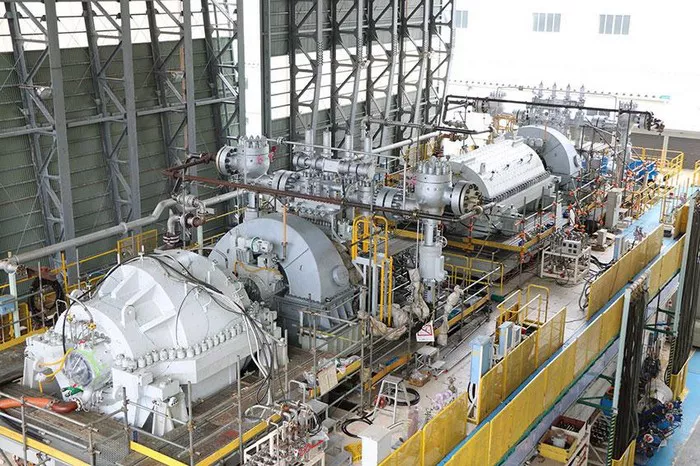CO2 compressors are becoming increasingly vital in global efforts to reduce carbon emissions. These compressors play a critical role across the carbon capture, utilization, and storage (CCUS) value chain, enabling the separation, compression, and long-term storage of CO2 emissions from industrial sources. Mitsubishi Heavy Industries Compressor Corporation (MHI Compressor Corp., or MCO) is aggressively pursuing a significant share of the growing CO2 compression market.
“CCUS facilities are designed to prevent atmospheric emissions by capturing CO2 from the exhaust gases of chemical and power plants, then storing it deep underground,” explained Sasaki Yuichi, senior acting manager of MCO’s strategy planning department. “Compressing CO2 within these facilities is essential to achieving a carbon-neutral society.”
CCUS Market Set for Rapid Expansion
Market analyst Wood Mackenzie forecasts a tenfold increase in CCUS capacity over the next decade, marking a sharp acceleration from two decades of modest growth supported primarily by government funding. By 2020, global CCUS capacity had reached 48 million tonnes per annum (MTPA), rising to over 55 MTPA by the end of 2023. Wood Mackenzie projects capacity to soar to 440 MTPA by 2034, with North America leading the expansion, followed by Europe, Asia Pacific, and the Middle East.
Meeting these ambitious production targets will require significant investment. An estimated US$200 billion in funding is needed to support the industry’s growth, contingent on sustained prioritization of decarbonization policies worldwide. The U.S. Department of Energy (DOE), for instance, has invested in multiple front-end engineering design (FEED) studies focused on natural gas and coal-fired plants to advance CCUS technologies.
Geological conditions favorable for carbon storage are abundant, particularly in North America, where salt caverns and other formations offer secure underground reservoirs. Most investment will be directed toward carbon capture infrastructure, with remaining funds allocated for CO2 transportation and storage solutions.
Related topics:

